



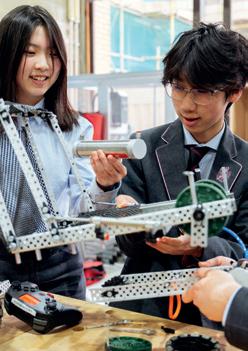


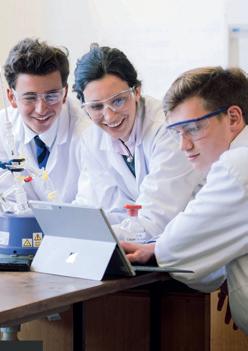

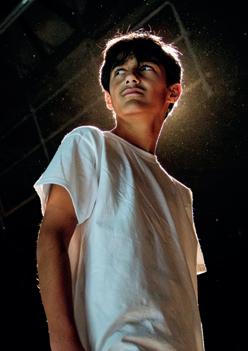






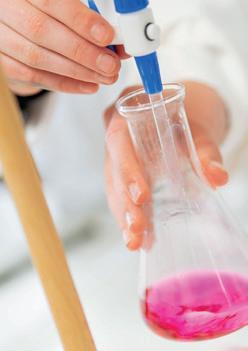

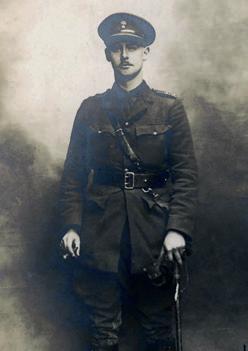




















In the Remove and Fifth Form it is expected that pupils would study nine or ten IGCSEs. The compulsory examined core of the curriculum comprises English Language, English Literature, Mathematics and the three sciences, either as Double Award Science (worth two IGCSEs) or as Separate Sciences, three stand-alone IGCSEs: Biology, Chemistry and Physics and a language.
Those pupils likely to study sciences at A Level (or at Higher Level IB) are best advised to study separate sciences at IGCSE. However, pupils who do not intend to continue with sciences post-IGCSE may wish to study IGCSE Science (Double Award). Under this option, pupils continue to study all three sciences but cover less content in each, leading to two IGCSE grades. This therefore allows another option subject to be studied.
Either three (for those taking three separate sciences at IGCSE) or four (for those choosing Double Award) additional subjects are chosen from the list below. At least one of these choices must be French, German, Greek, Latin or Spanish, and we also suggest that one of them is a humanities subject e.g. Ancient History, Geography, History or TPE (Religious Studies). For those with a diagnosed learning need, it is possible, in consultation with the Learning Support department and the Assistant Head (Under School), to disapply the language option and select another option from the below list. Those who wish to study ten IGCSEs, an additional subject from the list below is also chosen.
Ancient History, Art, Classical Greek, Computer Science, Design Engineering, Drama, Fashion and Textiles, French, Geography, German, History, Latin, Music, Physical Education, Spanish and Theology, Philosophy & Ethics (Religious Studies).
Public examinations in all subjects are taken at either GCSE or IGCSE at the end of the Fifth Form. Departments choose the best course for their subject and the two qualifications are viewed as equivalent for the purposes of university entrance. The Remove option arrangements are planned according to demand and, although it is usually possible to accommodate all requested subject combinations, we do occasionally need to revisit a pupil’s options where it has simply not been possible to construct the timetable to provide a particular set of choices.
Pupils are divided separately by level of attainment in Mathematics and, where possible or desirable, in Languages, Sciences and English; all other subjects are typically mixed ability groups, depending on a pupil’s combination of options.
Some information about the available (I)GCSE courses in all subjects is given below. Further information is available from the Head of Department of the subject concerned or from the subject teacher. The deadline for choices will be the Monday of the last week of Long Quarter.
English Language
English Literature
Mathematics
Two Sciences (Double Award) or Three Sciences (Biology, Chemistry and Physics)
Language:
French German Greek or Gratin Latin Spanish (Greek and Latin as an accelerated course)
For those with diagnosed learning needs, if you have received communication from the Assistant Head (Under School), you may be allowed to disapply a language and replace it with an option from the subjects below.
Art
Ancient History
Computer Science
Design Engineering
Drama Geography History
Physical Education (PE)
If studying Separate Sciences, two subjects from
Theology, Philosophy and Ethics (TPE)
Options:
Ancient History
Art and Textiles
Computer Science
Design Engineering
Drama
French Geography
German
History
Latin
Music
Physical Education (PE)
Spanish
Theology, Philosophy and Ethics (TPE)
If studying Double Award science, three from
If your child is studying ten GCSEs, select one further subject from options box
(I)GCSE Subjects

(Edexcel IGCSE – 4MA1 – Specification A)
The Edexcel IGCSE in Mathematics (Specification A) qualification enables pupils to:
• develop their knowledge and understanding of mathematical concepts and techniques
• acquire a foundation of mathematical skills for further study in the subject or related areas
• enjoy using and applying mathematical techniques and concepts, and become confident to use mathematics to solve problems
• appreciate the importance of mathematics in society, employment and study
The course covers four main areas of Mathematics: Number, Algebra, Geometry and Statistics as well as introducing Calculus.
The course is examined by two written papers both requiring a calculator and there is no coursework. All pupils take the Higher Tier papers of this qualification.

(AQA English Language GCSE – Specification 8700)
All Carthusians complete an English Language GCSE designed to develop their oral and written responses to material that is taken from a variety of sources. The course hones their ability to respond to the ways in which writers construct ideas and achieve their effects. Pupils are taught how to convey meaning in written language, matching style to audience and purpose.
There are two written exam papers for the English Language GCSE, as well as a spoken language endorsement. The written exams require pupils to read and respond to unseen fiction and non-fiction texts. Pupils respond to a series of short and long answer questions which assess understanding, analytical skills and evaluative skills. There are also creative writing and persuasive writing components which assess communication skills and technical accuracy. The spoken language endorsement consists of a short oral presentation given in class at the end of the Removes; this is a mandatory part of the qualification but does not contribute to the final GCSE grade.
(CIE IGCSE – 0992)
The course in English Literature allows for a wide-range of texts and genres to be studied across the two years, developing pupils’ ability to analyse language and form coherent written arguments. By the end of the course, it is expected that pupils will have an appreciation of the rich history of literature in English.
The qualification is assessed by a mixture of open and closed book exams at the end of the course.
Paper 1 (50%, closed book) involves the study of a novel and a selection of poetry. Paper 3 (25%, open book) is examined on a drama text, which will either by a Shakespeare play or a 20th century play.
Paper 4 is an unseen exam (25%), which allows for the study of a variety of literature throughout the course in preparation.
The course is ideal preparation for English Literature A Level and other essay-based subjects.

Carthusians may study all three Sciences to IGCSE level, leading to three IGCSE grades in Biology, Chemistry and Physics.
However, to increase flexibility for the pupils for whom this may not be appropriate, it will be possible to opt for IGCSE Science (Double Award); this will allow the study of another option subject at IGCSE.
It should be noted that any pupil likely to study any one of the Sciences at Specialist level is strongly advised to study all three (separate) Sciences at IGCSE.
All of the science courses act as suitable preparation for further studies in the relevant subject, whatever the future course of study.

(Edexcel IGCSE – 4BI0)
The course aims to stimulate a love for Biology, whether pupils wish to study it to Specialist level or not. The syllabus is broad, ranging from DNA and molecular biology, to human physiology, ecosystems and biotechnology. Many aspects are highly relevant to the human condition including the topics of diet and nutrition; reproductive biology; lungs (including smoking / vaping); heart physiology (sport, fitness and exercise); vaccinations and immunity; nervous system (linking to memory and drugs); human impacts on the environment; modern agriculture; and the use of stem cells and genetic engineering. It also provides the factual basis for understanding of the ethical and other issues arising from the current explosive growth of biotechnologies. There is no formal coursework, but there is a significant focus on experimentation and the scientific method throughout the course. Charterhouse takes a practical-led approach with pupils learning through frequent experimental work. The data led empirical approach, coupled with logical analysis, supports a wide range of Specialist subjects and career choices, whether in the bioscience field or not.
(Edexcel IGCSE – 4CH1)
The course aims to introduce pupils to the unifying patterns and themes of Chemistry, to appreciate the investigative and practical nature of the subject and to develop a logical approach to problem solving in a wider context. The emphasis of the course lies in a rigorous treatment of elementary chemistry and fundamental practical skills. The assessment of practical and investigative skills within the written papers, rather than by a practical coursework component or modular practical assessments, allows the department to deliver a wide range of practical teaching appropriate to the attainment of the pupils.
(Edexcel IGCSE – 4PH1)
From the formation of a galaxy to the bouncing of a ball, Physics helps us to understand the universe in which we live. Throughout the course pupils will gain an understanding of the physical principles behind such things as mechanics, optics, electricity and magnetism, waves, nuclear physics and astrophysics. Physics is both satisfyingly rigorous in its treatment of the theory behind the workings of nature and in its treatment of the practical skills required to become a methodical and rounded scientist.
In addition to developing mathematical and problem solving skills, we aim to emphasise the role of Physics in terms of its social, economic and environmental importance. The world would be a very different place without wireless communication, the electric generator and much more!

Alexander the Great. Pericles. Cleopatra. Hannibal. GCSE Ancient History helps pupils to explore and appreciate the ancient world, taking a romp through the most exciting parts of Roman and Greek history, and offering pupils a chance to study in-depth the defining characters and key events that shaped Greco-Roman antiquity. Events and figures will be studied through the media of art, archaeology, and historical and literary sources.
Pupils sit four papers, lasting between 45 minutes to 1 hour. There is no coursework. All pupils will study the Persian Empire and the early Roman Republic, both modules focussing on political change, religious and social change, and the impact of warfare and military change. The two depth studies will be at the beak’s discretion, but will be two from Alexander the Great, Athens in the age of Pericles, or Cleopatra.
The course is intellectually stimulating: pupils will have touched upon these topics in Fourths, but the GCSE gives pupils the opportunity to take their studies further and looks at the chronology and material fact of events in greater depth. Pupils are required to analyse historical and literary sources and utilise these to produce coherent written arguments, as well as recall factual information to test the veracity of statements from authors of antiquity. All pupils should consult their beak should they wish to take this subject. The course is ideal preparation for pupils considering careers that require high degrees of analytical skill, the interpretation of complex data, or the delivery of evidence-based arguments.
The study of Ancient History in Fourths is not required to take Ancient History for GCSE.

This is a forward-thinking course which promotes self-expression, problem solving and creativity underpinned by a knowledge of traditional as well as new and emerging media. Pupils produce practical and critical / contextual work across a wide range of disciplines, including drawing, painting, mixedmedia, sculpture, installation, printmaking, textiles, ceramics, film, animation, video, photography and many more.
During the first year, pupils are taught to explore new ideas and techniques and to build a portfolio, with sketchbooks and final outcomes showing an increasingly personal direction in creative output. Visits to London as well as local exhibitions inform and inspire their work with pupils studying a wide range of artists, designers and architects from around the globe.
A study-trip to St Ives is offered at GCSE level which broadens their exposure to a range of practicing artists through practical workshops, strengthening their GCSE portfolio.
In the second year, pupils continue to develop their portfolio. In January, they receive an externally set task which they have until April to prepare, building on the skills they have learnt in their portfolio unit. Following this, pupils produce a piece of work in their chosen media, undertaken in controlled conditions.
The course culminates with a final exhibition in Studio which is an opportunity for pupils to showcase the wide range of artwork they have developed over two years.
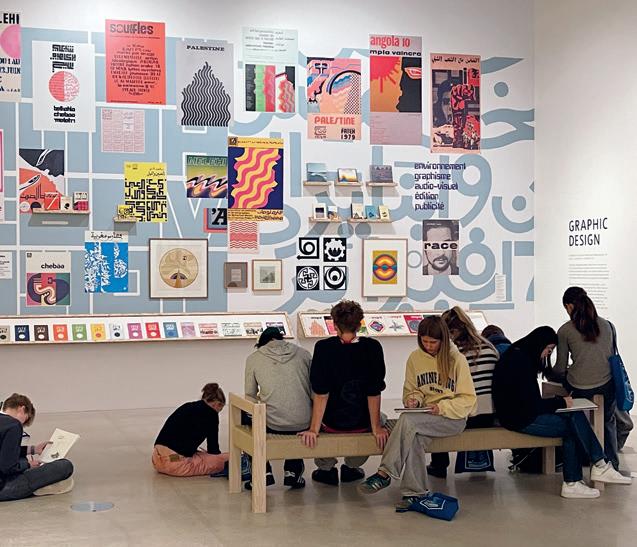
(OCR GCSE – J292)
Classical Greek GCSE develops pupils’ skills in problem-solving, accuracy and analysis whilst giving them the opportunity to encounter some of the greatest works of western literature in the language of the Greeks themselves. Pupils are required to demonstrate their linguistic competence in one unit by translation of unprepared passages of Greek into English and by comprehension exercises. A further two units of study explore works of prose and verse in the original language: these might be Herodotus’ account of Arion’s rescue from a shipwreck by dolphins, Odysseus’ encounter with the witch Circe in Homer’s Odyssey, or the poignant insight into the female experience of war offered by Euripides’ tragedy, The Trojan Women. Set texts are studied in detail, and, in the examination, passages are given for translation and comment on context, background and literary content. All exam papers are marked externally and there is no coursework. Pupils must have studied Greek in the Fourths to embark on the GCSE.
There is also the option of Gratin (Greek and Latin) where pupils acquire a GCSE in each subject in the timetabled space of one GCSE subject (4 hashes per week). This course is suitable for those who are already highly proficient in Latin and would relish the intellectual challenge and hard work required to study both as part of an accelerated course. Pupils considering this option must speak to their beak first.
Like Latin, Greek fosters a high level of analysis, problem-solving, and argumentation in its pupils, and its relative rarity makes it an eye-catching entry on a CV.
Pupils taking the GCSE in Computer Science will develop their understanding of the main principles of problem-solving using computers. They can apply their understanding to develop computer-based solutions to problems using algorithms. Pupils will be taught to code using Python, a popular high-level programming language, the fundamental techniques will provide pupils the skillset to learn other languages. The skills learnt can also be used in other areas of study and in everyday life.
Learners will develop a range of technical skills, as well as being able to effectively test and evaluate computing solutions. This course will help learners appreciate current and emerging computing technologies, the benefits of their use and recognise the ethical issues and potential risks when using computers. The course is assessed by two examinations, one of which is a practical programming examination, both are marked externally; there is no coursework.
This is a course requiring pupils to think both logically and creatively; it will particularly be suited to pupils who enjoy problem solving and have a good understanding and high level of competence in Maths and Physics.

(OCR – J310)
The Design Engineering Department enables pupils to identify, consider and solve problems through creative thinking, planning, iterative design, and by working with different media, materials and tools to produce a final manufactured product. This is done via several practical projects in the workshop, user centred design, upcycling, learning about sustainability, coding and electronics. In addition, they will be introduced to CAD/CAM to enable them to independently use the 3D printers, Plasma cutter and other CNC machines.
Pupils gain technical skills, design awareness and communication skills central to the iterative design process. Pupils are given coursework which expects them to respond to real-world problems leading to all Fifth Form pupils designing and developing a product of their choosing whilst working with a real-life client. Creativity and originality are central to the course and experimentation with a wide range of materials and techniques is encouraged. Pupils final prototypes are created in the JDTC’s well-equipped workshop using CAD/CAM technology, as well as traditional manufacturing techniques. Entrepreneurship is also fostered by exploring patents and various production methods.

The two-year course is designed to aspire and prepare pupils for the OCR Design Engineering course offered at A Level and to also be creative problems solvers for todays and tomorrows world. The course will be assessed in the following ways at the end of the Fifths:
Non-Examined Assessment (coursework): Iterative Design Project (100 marks, 50%) This is a single design and make project. Each pupil will identify a design problem and liaise with a real-life client to develop their product. It consists of an e-portfolio and the manufacture of a physical product.
Examination Paper: Principles of Design Technology (2hr written paper, 100marks, 50%) The paper is split into two parts focussing on both ‘core’ knowledge and ‘in-depth’ knowledge on one main material category, or design engineering.
For more information, please visit the OCR website and you can also check out the other cool things the Design Engineering department are up to via

GCSE Drama is a qualification that will be engage pupils through encouraging creativity. Key skills that are developed over the two-year course are communication, empathy, confidence building, collaboration as well as performance and design skills. The main area of focus is on practical work, which reflects contemporary theatre practice as well as providing pupils the opportunity to reflect on the world around them. There are also numerous opportunities through the course to evaluate live theatre productions.
There are three components to the GCSE:
The first is devising, where pupils will develop their practical skills to create a powerful and original piece of theatre. Within this, they can choose a performer or designer pathway and will have the opportunity to perform this to an audience. This work is supported by a written portfolio and is internally marked.
The second is performance from a text, where pupils perform in or design for two key extracts from a performance text. This is externally examined by a visiting examiner in the second year.
The final component is a written examination, which includes an evaluation of live theatre, and the study of one set text. Choices of set texts include; ‘An Inspector Calls’, J B Priestley, ‘The Crucible’, Arthur Miller and ‘DNA’, Dennis Kelly.

The IGCSE Geography course provides an opportunity for pupils to gain an understanding of the world in all its guises; it is a broad-based subject which develops a number of intellectual skills, including literacy, numeracy, diagrammatic representation, oral presentation skills and the application of ICT. The course encourages the use of fieldwork to underpin knowledge and understanding.
The IGCSE is assessed through two external examinations; there is no coursework. In Section A (The Natural Environment and People), pupils complete two of the following three topics: River Environments, Coastal Environments and Hazardous Environments. In Section B (People and their Environments), they again complete two of the following three topics: Economic Activity & Energy, Ecosystems & Rural Environments and Urban Environments. In Section C (Practical Geographical Enquiry), pupils are tested on the development of practical geographical enquiry skills related to fieldwork (this will require a field trip within the UK and, depending on the location, may be residential) on each selected topic from Sections A and B. In Section D (Global Issues), pupils study one topic chosen from: Fragile Environments, Globalisation & Migration and Development & Human Welfare.

The Edexcel IGCSE History course covers two Depth Studies, an Historical Investigation and Breadth Study. At Charterhouse our chosen Depth Studies are: Germany: development of dictatorship, 1918-45 and A world divided: superpower relation, 1943-72. Our Historical Investigation is: The USA,1918-41 and the Breadth Study is: The changing nature of warfare and international conflict, 1919-2011. Emphasis is placed on development of a variety of skills, especially the ability to analyse documentary material and communicate relevant information effectively. Pupils are assessed by two 90-minute exams at the end of the two-year course.
IGCSE History is not a prerequisite for Specialist study in History.
(OCR GCSE – J282)
Latin GCSE develops pupils’ skills in problem-solving, accuracy and analysis whilst giving them the opportunity to encounter some of the greatest works of western literature in the language of the Romans themselves. Pupils are required to demonstrate their linguistic competence in one unit by translation of unprepared passages of Latin into English and by comprehension exercises. A further two units of study explore works of prose and verse in the original language, from the poet Virgil’s account of the grisly death of Laocoon in the Trojan War, to the heart-rending tale of Psyche’s doomed love for the god Cupid in Apuleius’ Metamorphoses. Set texts are studied in detail, and, in the examination, passages are given for translation and comment on context, background and literary content. All exam papers are marked externally and there is no coursework.
Pupils must have studied Latin in the Fourths to embark on the GCSE. The course is ideal preparation for pupils considering careers that require high degrees of linguistic, analytical, or technical skill.
(AQA GCSE – 8652)
(AQA GCSE – 8662)
(AQA GCSE – 8692)
Pupils who study foreign languages at Charterhouse will be taught to express themselves confidently and accurately. Considerable emphasis is placed upon the regular acquisition and practical use of new vocabulary. A broad range of topical listening and reading material is covered in hash, in conjunction with thorough grammatical explanations and exercises. To study any of these languages as a Remove, the language must have been studied in the Fourth Form.


Music IGCSE allows pupils to develop skills in listening, performing and composing. Music from the Western tradition (Baroque, Classical, Romantic and Twentieth Century) is studied alongside music from around the world (African and Arabic music, and music from Latin America, India, China, Japan and Indonesia). Pupils are encouraged to enhance their understanding, appreciation and enjoyment of a wide variety of musical cultures.
By way of coursework, pupils also develop their practical musical skills. Performances are given on an instrument of their choice, both individually and in a group of other musicians. Through a carefully guided course, pupils are taught the basics of composition, culminating in the composition of two pieces in their own style.

The course in Physical Education allows pupils an opportunity to study the practical and theoretical aspects of physical activity. The theory course is split up into three components, anatomy and physiology, skill acquisition and psychology and the socio-cultural influences that affect sport today.
The qualification is assessed by two written papers (60% of the course) comprising of short and long style questions. A Non-Exam Assessment (NEA) portfolio of practical performances (40% of the course) is the other component and will be moderated through live performance.
The NEA practical portfolio comprises evidence of practical performance in three different physical activities (as a player or performer in both an individual and team activity and one other) as well as an analysis and evaluation of their performance through assessed coursework.
This course would be suitable for anyone who has an interest in sport and who plays to a good level in at least two activities.

(Edexcel IGCSE – 4RS0/01)
This course has one singular focus and aim: to equip young people for the ethical and philosophical questions they will encounter in their lives. There are three core components of the course, all intimately related to pressing issues in our world today from ethics, to philosophy and an in-depth study of Islam.
• Modern ethical issues: Crime and Punishment, War and Conflict, Euthanasia, Human Rights, Discrimination and Racism
• Philosophy: the Meaning of Life, Evil and Suffering, the existence of God, Determinism: is free will an illusion?
• Islam: Sunni and Shi’ah Islam, the Qur’an and the Prophet Muhammad
The course is perfectly suited to those who thrive in debate, discussion and who want to learn how to win an argument both orally and in the written word. It teaches pupils to analyse, evaluate and assess different points of view, with the aim of coming to an understanding of their own outlook on these complex and fascinating issues.
There are two examined papers and no coursework.


All
Deputy Head (Academic)
Assistant Head Academic (Futures & Sixth Form)
Assistant Head (Under School)
Art and Design
Classics
Ancient History, Latin and Classical Greek
Computer Science
Drama
English
English Language and English Literature
Geography
History
Mathematics
Modern Languages French
Music
Physical Education
Religion, Philosophy and Ethics
Science
Miss H Pinkney
Mr Joseph Kopiel
hep@charterhouse.org.uk jhjk@charterhouse.org.uk
Mrs R Markham-Jones rhmj@charterhouse.org.uk
Mrs V North-Panting vnp@charterhouse.org.uk
Mrs R Pugh
Mrs L Bennett rxp@charterhouse.org.uk emb@charterhouse.org.uk
Miss G Galton-Ayling gga@charterhouse.org.uk
Mrs A Struttmoore aes@charterhouse.org.uk
Mrs C McDonald clm@charterhouse.org.uk
Mr A Hill agh@charterhouse.org.uk
Ms Patricia Aguado de la Fuente
Mr N Budden
Mr R Duke
Mr R García Encinas pa@charterhouse.org.uk njb@charterhouse.org.uk rjd@charterhouse.org.uk rge@charterhouse.org.uk
Dr RCD Millard rcdm@charterhouse.org.uk
Mrs N Edwards nle@charterhouse.org.uk
Mr M Begbie mb@charterhouse.org.uk
Mr David Dickinson
Mrs A Higgins
Mr David Dickinson
Miss A Jackson dpd@charterhouse.org.uk alh@charterhouse.org.uk dpd@charterhouse.org.uk amj@charterhouse.org.uk